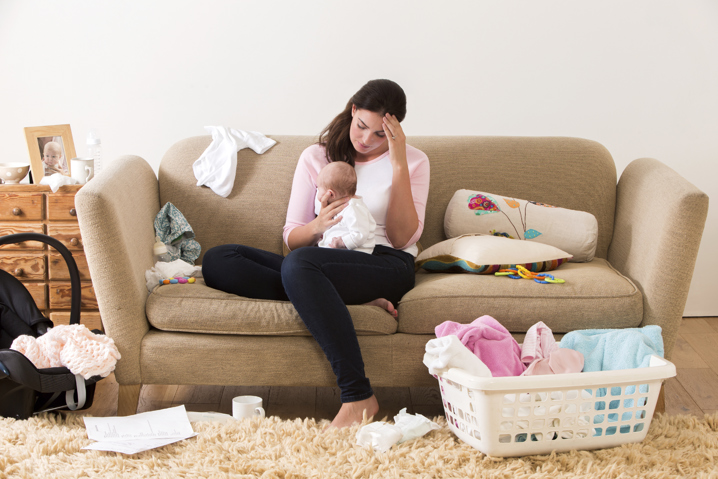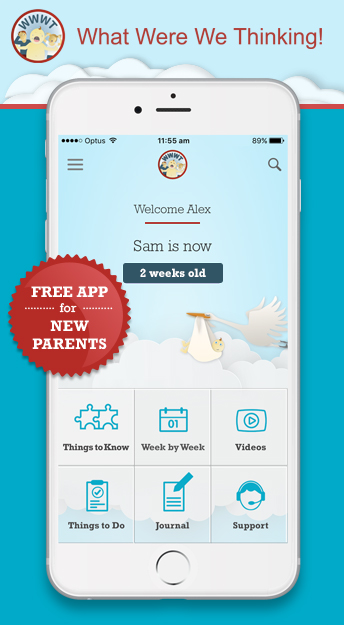Motherhood and identity with a new baby
By Jane Fisher

‘Identity’ is quite an abstract term, but in general it is understood to mean our sense of self as represented in our relationships with other people (e.g. being a partner, a parent, a colleague or a friend); our nationality, culture and language and, of great importance, our occupation.
There is never a perfect time in a woman’s life to have a baby. One of the inevitable, but least anticipated, experiences of motherhood is how much is lost when a baby is born. When a woman has a first baby she experiences, overnight, the quite dramatic loss of almost all that has formed her identity until that point in her life. In giving birth, women lose (at least temporarily) professional identity, capacity to generate an income, social and leisure activities, bodily confidence, time alone, and a lot of their freedom. Unfortunately, these are unrecognised or ‘disenfranchised’ losses. There is little public recognition of these losses and no special rituals to acknowledge them (there is no funeral for your professional identity!)
Why didn’t I know that this would happen?
Most of us imagine that having a baby will bring us joy and complete happiness, but it is a much more complicated experience than this. There are few life changes that are as irreversible or as permanent as having a baby. Nothing in your “previous life” is like having a baby so it is not really possible to imagine what it will be like.
What does this change in identity mean?
At first we are often conscious of what has been lost, of things like feeling competent and confident in our profession, or of being free to stay out late, meet up with friends at short notice or be involved in stimulating conversations. Gradually new parts of our identity grow. Parents often say that they learn to be more patient and to remain calm when unexpected things happen. Ultimately these capacities are added to those we have developed earlier in our lives to add our new identity as a parent to our previous identity.
What happens to my relationship with my partner?
There is often a marked difference in the losses experienced by women and men after the birth of a baby. Men can make big adjustments in working hours and participation in life at home, but in general they do not lose the same or as many aspects of identity as women do. This brings about a gendered divide in daily experience that most of us have not anticipated and, at least at the beginning, many of us find it difficult to negotiate. It is helped if we can discuss calmly and without blame, who is going to take responsibility for what, so the work is divided fairly.
Why is the language we use important?
Becoming a mother is rarely described as moving from one workplace to another. Women are described as ‘giving up work’ or as ‘not working’ when they have a baby. These inaccurate descriptions suggest that mothering an infant is like being on holiday, with lots of discretionary time and increased relaxation and flexibility. In reality, infant care requires the equivalent of working a double shift and remaining on call for the third shift every day. There are no position descriptions or duty statements, most of the work is invisible and it can be unnoticed.
Feeling valued and worthwhile helps a new identity
When a butterfly first comes out of a chrysalis its wings are fragile, but gradually it becomes stronger and can fly. Our new identities as mothers and fathers take time to grow. It is especially important to give each other encouragement and reassurance which is an important part of the learning process. Criticism and humiliation are especially harmful when we feel uncertain. You are both working, and parents feel more valued and worthwhile if the unpaid work is recognised and valued as well as the work that generates an income.
Jane Fisher is Clinical and Health Psychologist and Professor of Women's Health. She has been a sessional consultant to Masada Private Hospital Mother Baby Unit since 1996. Jane's research focuses on understanding and addressing the factors that influence women's and men's health and wellbeing during pregnancy and the life phase of caring for young children.
Posted in: A new reality Baby 0-4 weeks Late pregnancy Parenting Experts Your needs








